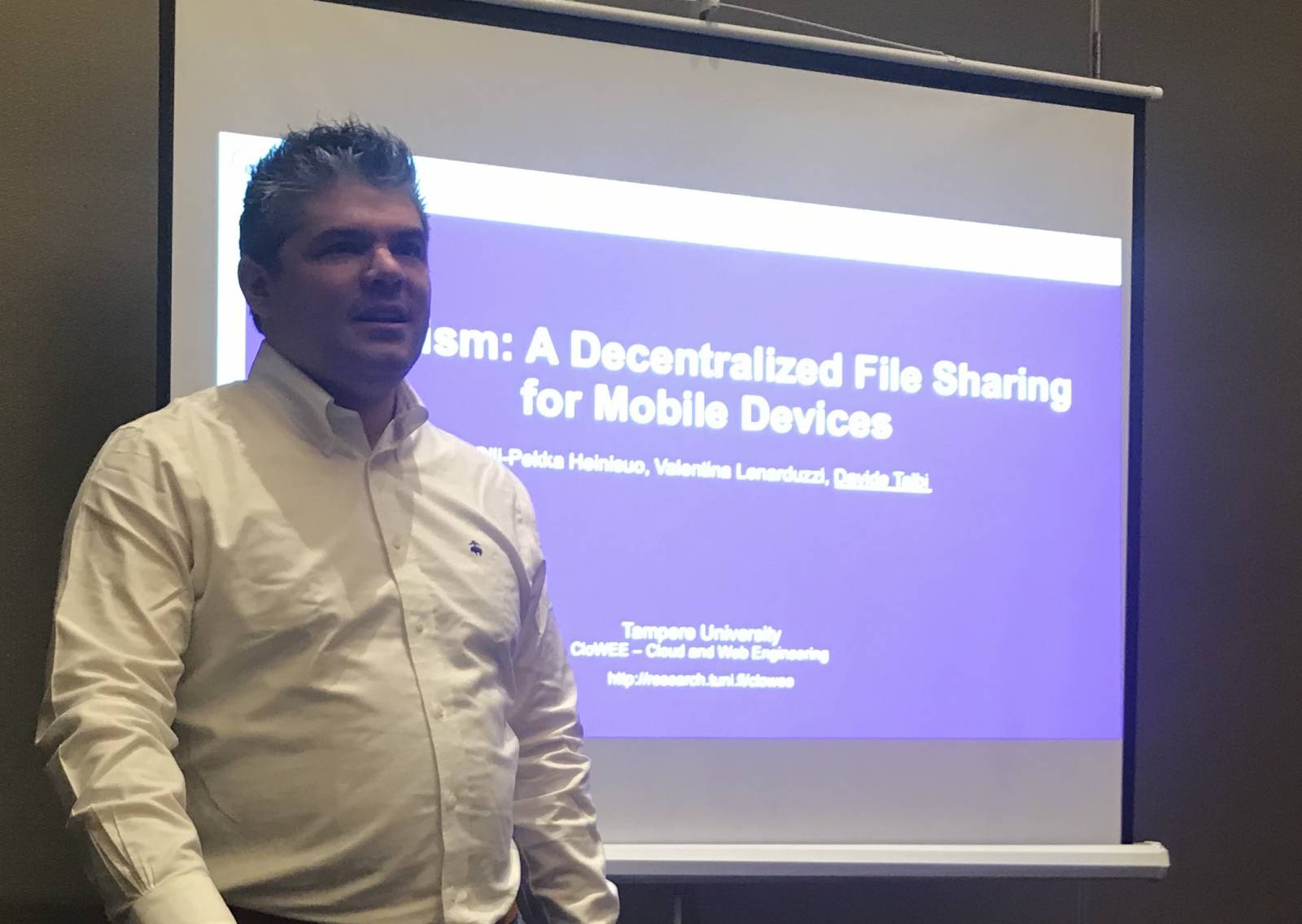Most applications and services rely on central au- thorities. This introduces a single point of failure to the system. The central authority must be trusted to have data stored by the application available at any given time. More importantly, the privacy of the user depends on the service provider capability to keep the data safe. A decentralized system could be a solution to remove the dependency from a central authority. Moreover, due to the rapid growth of mobile device usage, the availability of decentralization must not be limited only to desktop computers.
In this work we aim at studying the possibility to use mobile devices as a decentralized file sharing platform without any central authorities. This was done by implementing Asterism, a peer-to-peer file-sharing mobile application based on the Inter- Planetary File System. We validate the results by deploying and measuring the application network usage and power consumption in multiple different devices.
Results show that mobile devices can be used to implement a worldwide distributed file sharing network. However, the file sharing application generated large amounts of network traffic even when no files were shared. This was caused by the chattiness of the protocol of the underlying peer-to-peer network. Consequently, constant network traffic prevented the mobile devices from entering to deep sleep mode. Due to this the battery life of the devices was greatly degraded.
This work has been presented at the IEEE Mobile Cloud Conference
The paper is available here for download
@skvark @valelenarduzzi @davidetaibi @ComputingSc_TAU @TampereUni

